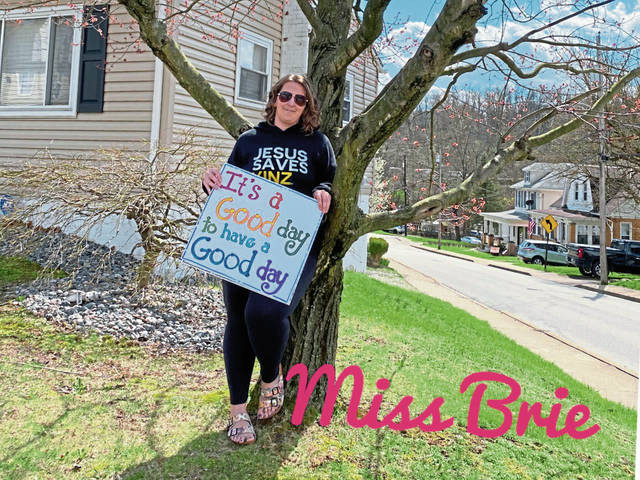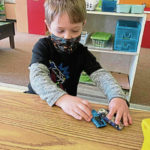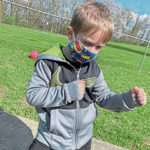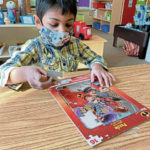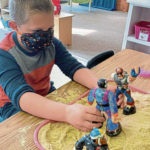One child who attended Frock Child Care Center in Mt. Pleasant thinks they did something wrong and can’t go back to school. Another is worried that their parents can’t afford to send them anymore.
As the world grapples with hundreds of thousands of deaths due to the coronavirus, children are pulled from their day-to-day routines, unable to go to school or see their friends.
“(They’re) worried, like, ‘Am I going to go back to school?’ ” owner Charlene Frock said. “Worried that (teachers) aren’t there and something’s going to happen.”
The center, which about 200 children from 6 weeks to school age attended, has sat dark since the end of March after Gov. Tom Wolf ordered non-life-sustaining businesses to close to help curb the spread of the virus.
But the transition into the new stay-at-home order has not been easy for some children, who struggle to understand what is happening. Day care and child care service workers are hoping to ease the transition as much as possible.
At Frock, review packets were compiled for preschool kids, giving them their own work while their siblings participate in online learning after districts were closed for the rest of the school year. Teachers at the center hosted a virtual spirit week to let the kids know they aren’t forgotten.
A video posted to JB’s Bright Beginnings Facebook page shows pictures and messages from teachers missing their students. Kate Berger, owner of the Irwin facility, said teachers have been communicating with students through websites for each classroom.
About 12 students are still attending classes at the Brush Hill Road location after Berger received a waiver to care for kids whose parents are considered essential.
Normally, the site has up to 200 children.
“Kids are resilient,” Berger said. “The little ones we have here, even now we’re open for essential parents, they’re kind of unfazed by it all.”
She added that officials at JB’s Bright Beginnings have had conversations with school-age children who are more aware of the pandemic.
“We kind of have a positive take on everything here,” Berger said. “The kids are open to talking about any concerns. I don’t think we’ve seen a negative impact.”
Other centers, like Brass Ring Learning Center in West Mifflin, have started online story times, where teachers post videos while reading stories aloud.
Routines
Still, feelings of disappointment can develop in children missing out on events such as plays or sports activities, according to Dana Winters, director of simple interaction and academic programming at the Fred Rogers Center at Saint Vincent College near Latrobe.
“I think that children, just like adults, are cycling through a number of different emotions,” Winters said. “Children get used to routines, and routines are very, very good for kids. … Kids aren’t going to come straight out and say, ‘Hey, mom. I’m missing my routine.’ ”
Helping them through those emotions, according to Dr. Abigail Schlesinger, service chief for child and adolescent psychiatry at UPMC Western Psychiatric Hospital in Oakland, depends on their age.
The key to helping them overcome those fears is to take advantage of when kids are ready to talk about their feelings, especially teenagers, she said.
“It’s definitely important to not assume that you know what they’re worried about or what they’re thinking about what’s going on because they could be thinking about something totally different than you are, and you can’t help them if you don’t know where their thoughts are coming from,” Schlesinger said.
As time goes on and circumstances continue to change, some children could start to feel additional anxieties, she said. People wearing masks while at the grocery store or running other errands could add to that.
She suggested asking children if they knew why people were wearing masks. To answer, she said to say, “This is part of what we’re doing so that we can beat this coronavirus.”
The Fred Rogers Center is offering several tips on how to talk to children about the virus, including letting them know adults are in their life protecting them, limiting the news exposure and asking what they’ve heard about the virus.
Schlesinger added that kids who feel they need to talk with someone other their parents can call a children’s line at Western Psych at 412-235-5444. UPMC Children’s Hospital of Pittsburgh also has a behavioral health services line at 734-933-3910.
Period of transition
Keeping a consistent schedule throughout the pandemic could make it easier once schools and day care centers are open, Schlesinger said, noting that families who keep a scheduled dinner and bedtimes over the summer normally have an easier transition when school starts in the fall.
Frock is hoping the children will gradually come back, giving teachers more one-on-one time with each one to ease them back into their schedules. For a handful of new children to the center, who did not have ample time to acclimate, pictures of their families will be available if they become sad and they will be put in classrooms with kids familiar to them.
Frock also plans on checking the temperature of each child who arrives.
Kids who are still attending JB’s Bright Beginnings have their temperatures checked daily. Parents drop children off at the door rather than bringing them inside, Berger said.
“The children are my number one concern. … We’ve got to worry about my staff and these children,” Frock said. “I would feel horrible if any of the children would get (the coronavirus). It’s a home away from home.”




